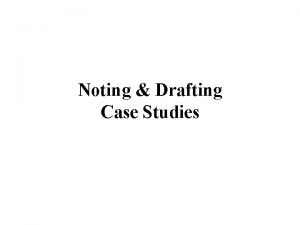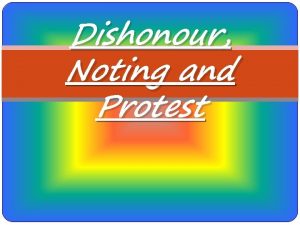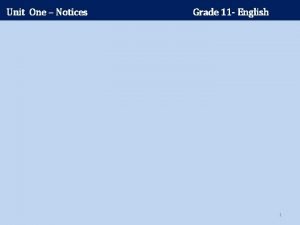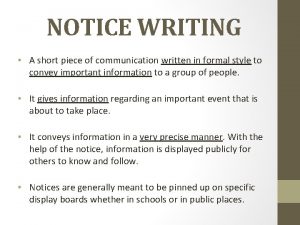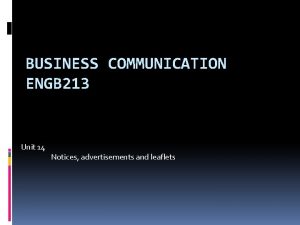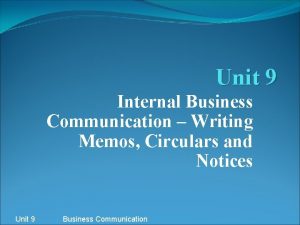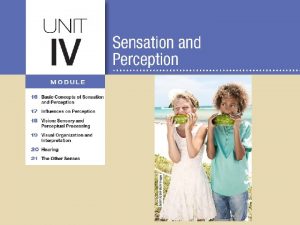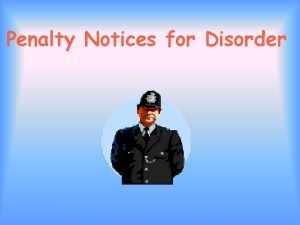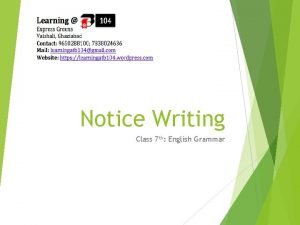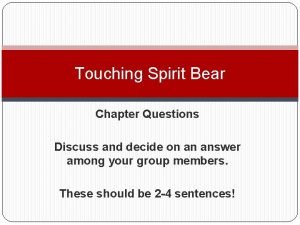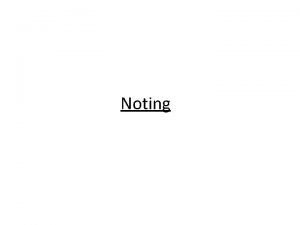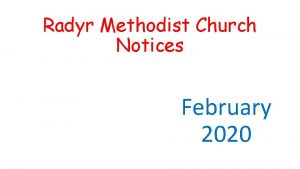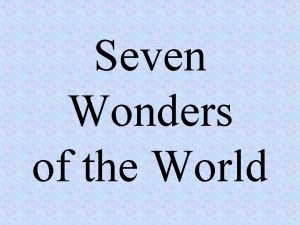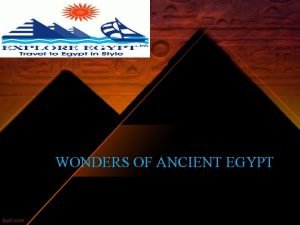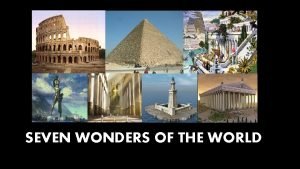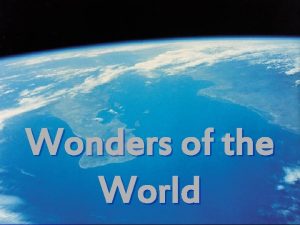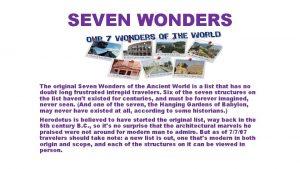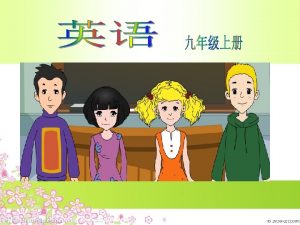Introducing If and Noting Notices and Wonders of












- Slides: 12

Introducing “If” and Noting Notices and Wonders of the First Stanza Lesson 2 Unit 2 Quarter 3 Bud not Buddy

Materials

Opening For homework you were to use evidence flags to identify three moments in Chapter 14 that showed Bud’s life changing from surviving to thriving. Share three pieces of evidence you marked with your group and why you chose each piece of evidence.

Learning Targets I can describe the structure of the poem ‘If. ’ I can identify the meaning of unfamiliar vocabulary from the context.

to g n i n e t s i L d Reading an rding of “If” o Audio Rec Take out the Poem “If” Poem was written by a famous author named Rudyard Kipling, who lived from 1865 to 1936. Explain that there is another stanza, which they will see later on in the unit. The poem has been recorded as an audio version, so we are going to begin by reading along as you listen to it. Play If “If” by Rudyard Kipling, Excluding the Fourth Stanza If you can keep your head when all about you Are losing theirs and blaming it on you; If you can trust yourself when all men doubt you, But make allowance for their doubting too: If you can wait and not be tired by waiting, Or being lied about, don’t deal in lies, Or being hated, don’t give way to hating, And yet don’t look too good, nor talk too wise; If you can dream—and not make dreams your master; If you can think—and not make thoughts your aim, If you can meet with Triumph and Disaster And treat those two impostors just the same: If you can bear to hear the truth you’ve spoken Twisted by knaves to make a trap for fools, Or watch the things you gave your life to, broken, And stoop and build ’em up with worn-out tools; If you can make one heap of all your winnings And risk it on one turn of pitch-and-toss, And lose, and start again at your beginnings And never breathe a word about your loss: If you can force your heart and nerve and sinew To serve your turn long after they are gone, And so hold on when there is nothing in you Except the Will which says to them: “Hold on!”

Discuss in your Groups: * “So what is this poem mostly about? ” Now that you have read a poem, what makes a poem different from a story? ” Poetry has a rhythm to it—it doesn’t always follow the way someone would speak. In poetry, ideas are organized into stanzas rather than paragraphs, and the language in poetry tends to be more descriptive than the language in prose. What is a stanza? It is like a verse in a song Discuss in your Groups: * “Now that you have heard poetry read aloud, how is it read differently from a story? Why? ” Poem is read in a rhythm, almost like a song without music, because the rhythm helps to convey the meaning. Also, there is more emphasis on certain words, and there are perhaps longer pauses between lines or stanzas of poetry than there would be when reading a story aloud to emphasize the meaning in particular lines Discuss in your Groups: * “Why is it important to read poetry closely? ” In poetry every word counts—each one has been chosen carefully to convey meaning— so they need to read poetry very carefully and analyze the word choice carefully to understand the meaning that the author was trying to convey

Notices and Wonders of First Stanza Lets look at the first stanza. Follow along as I read it aloud. If you can keep your head when all about you Are losing theirs and blaming it on you; If you can trust yourself when all men doubt you, But make allowance for their doubting too: If you can wait and not be tired by waiting, Or being lied about, don’t deal in lies, Or being hated, don’t give way to hating, And yet don’t look too good, nor talk too wise; Take out the Analyzing “If” graphic organizer. In your groups, you are going to discuss what you notice and what you wonder about the first stanza. Then record your notices and wonders about the first stanza of “If” on this organizer. Ignore the rows of the Also ignore the Paraphrased column for now. You will work on this in the next lesson. Take 15 minutes to discuss and write your answers

Punctuation in poems is like traffic lights. Red lights might be colons, semicolons, exclamation marks, or question marks that tell you to stop and understand the idea being shared. These types of punctuation most often signal that one idea is ending and a new idea or theme is beginning. Yellow lights are commas; we pause to make connections but do not stop. Often either side of the comma connects lines that should be read as one idea. Green lights happen when there is no punctuation and you read without stopping or pausing.

Look at Stanza 1, lines 1– 4 and discuss the following questions with your neighbor. “How does the punctuation help guide your reading of the stanza? ” I notice there is not a comma at the end of line 1 but there is a semicolon at the end of line 2. This means the reader has to read all of lines 1 and 2 as whole idea (green light). The two lines make sense together. Thumbs-up, thumbs-sideways, or thumbs-down on your understanding of how punctuation helps them to read the poem. Think-Pair-Share: “Read lines 3 and 4. How does the punctuation help you read the poem? ” Comma at the end of line 3 slows you down like a yellow light. But you keep reading until the colon at the end of line 4, which means to stop at the red light for a minute and figure out what the last two lines mean as one main idea.

“What do you notice and wonder about the word choice? Are there any words or phrases that stand out to you? Why? ” Record their notices and wonders about the words on their organizer. Who can share their notices and wonders with the whole group?

Exit Ticket: What Does Bud Mean? read the excerpt and the question at the top of the exit ticket, write your answer to the question on your exit ticket.

Homework • Read Chapter 15 of Bud, Not Buddy. Complete the Tracking Bud’s Rules graphic organizer for any rules you encounter in Chapter 15.
 Noting and drafting samples
Noting and drafting samples Noting and protesting
Noting and protesting Aoifes notes speech writing
Aoifes notes speech writing Notices for grade 11
Notices for grade 11 Shramadana campaign notice in english
Shramadana campaign notice in english English grammar notice writing
English grammar notice writing English literary association notice
English literary association notice Notices in business communication
Notices in business communication Memo internal communication
Memo internal communication Ester is walking to class when she notices
Ester is walking to class when she notices Penalty notice for disorder
Penalty notice for disorder Notice writing for class7
Notice writing for class7 Touching spirit bear chapter 9
Touching spirit bear chapter 9
